In today’s flashlight review, Clayton Walker takes a look at the SureFire Stilleto Pro II. A high-powered update to the original Stiletto Pro, the new light offers a lot of power in your pocket. Does it work for everyday carry and self-defense? SureFire provided the new Stiletto Pro II to the author for this review.
About 17 years back, I remember when I bought what was then one of a new breed of “tactical” flashlights. That flashlight was a SureFire: one of the company’s G2 models. It cost me about $80 in 2007 dollars, but I was astonished by how it eclipsed the hardware store-level fodder I had stashed in various drawers around the house. My G2 was rugged, long-lasting, and boasted what was then an astonishing 80 lumens of output.
Frankly, it’s astonishing how much growth has occurred in the world of flashlights in only a decade and a half. SureFire’s Stiletto Pro II, one of the company’s newest offerings, is a perfect re-introduction to the world of tactical lights if you’re a little out of the loop. However, even if you’re a die-hard gearhead and already have a number of tactical lights, I’d posit that you might also find something in this package to fall in love with.
SureFire Stiletto Pro II Performance
Let’s start with what I think everyone wants to hear: the Stiletto Pro II at max power is going to give you 1,500 lumens to work with. More on lumens in just a moment.
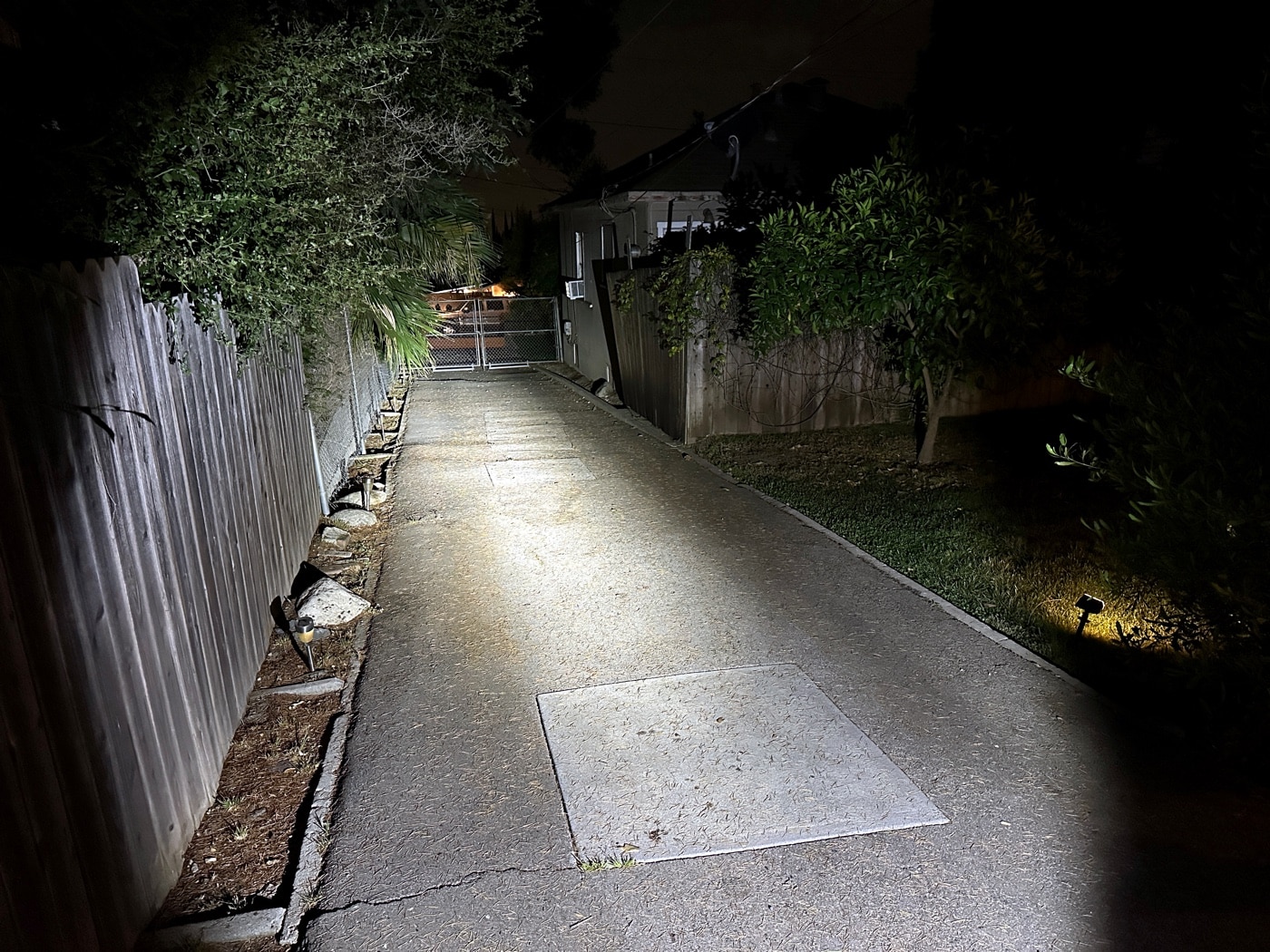
At max charge, the Stiletto Pro II can run at its highest output for a full hour and will throw a beam of light 375 meters (about 410 yards) away. SureFire has apparently designed what it calls a “Hybrid Beam” pattern to give users both brilliantly intense central beam and sufficient spill light to provide as much additional situational awareness as possible. The flashlight also offers a strobe mode through the tailcap switch as well as two lower-power modes (25 lumens and 500 lumens) for tasks that don’t require flooding open areas with as much light as possible.
Naturally, the Stiletto Pro II is as rugged as you would expect from a SureFire product. The body of the flashlight is a hard-anodized, military-grade aluminum that provides good purchase through its machined grooves, with rubberized controls that are sufficiently grippy. Power comes from an internal lithium polymer battery that, conveniently, is USB-C rechargeable. All that, and the flashlight is also waterproof within a meter of depth and up to 30 minutes. It would be hard to kill this thing.
Light Output — Lumens and Candelas
Back to that beam, though. I used to think that lumens alone were a sufficient measure of “power” from a flashlight. In general, lumens measure the total quantity of light produced, regardless of focus, so it’s a decent metric for an apples-to-apples comparison of one light to another. In educating myself a little more about tactical flashlights, however, I kept returning to another measurement: candelas.
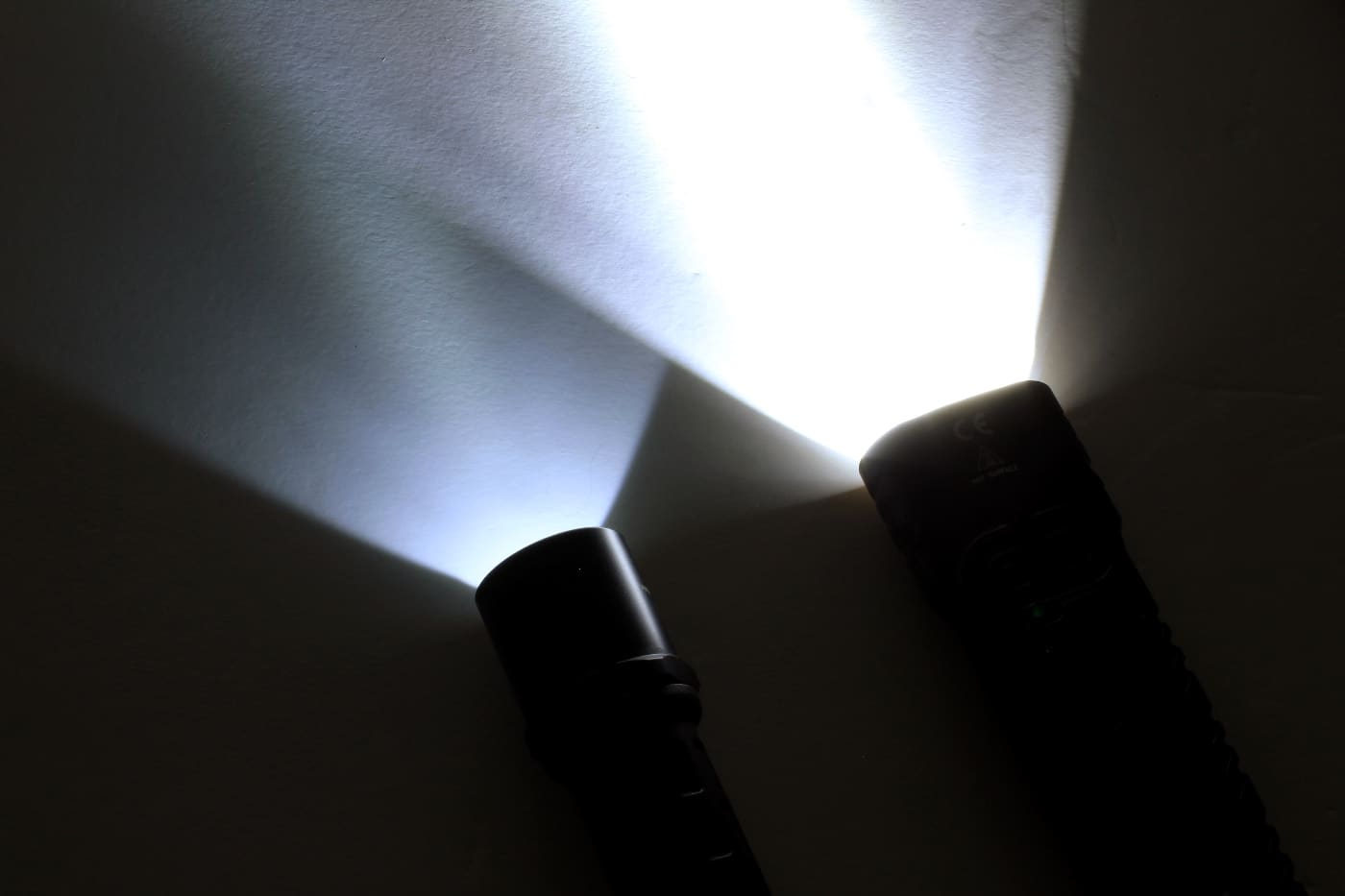
As SureFire explains, candelas describe the intensity of the beam at its brightest spot. In comparing the Stiletto Pro II to its little brother, the Stiletto Pro, the larger flashlight produces 50% more total light output over the original Pro’s 1,000 lumens.
However, the Stiletto Pro only produces 5,100 candelas as compared to the double-barreled Pro II’s output of 35,000 candela: that’s a seven-fold increase in intensity. Increasing the muscle over the previous Stiletto Pro, as SureFire’s Brenna McCoubrey informed me, was one of SureFire’s biggest goals when it came to the design of the Pro II.
Let me put this into clearer terms: if you’re going to shine a light into the eyes of some ne’er-do-well trying to do you harm, disorienting them as much and as quickly as possible is the goal. Where candela is concerned, more is more. I can’t imagine anyone looking right into the withering stare of the Stiletto Pro II and not wanting to instantly turn away from it. Having seen the amount of light it can throw, I certainly didn’t feel comfortable subjecting my own eyes to the full power beam just for yuks. Suffice it to say it’s very bright.
SureFire Flashlight Operation
The Stiletto Pro II can be engaged through one of two means. Either of the buttons on the body of the flashlight will cycle through low-medium-high settings by default (but can be so configured to run through this operation in reverse). The tail switch will instantly engage the high output mode, and if triple-tapped (and held on the third press) it will engage the strobe function. The tail switch can be configured from a “press and hold” default to a tap on/tap off mode.
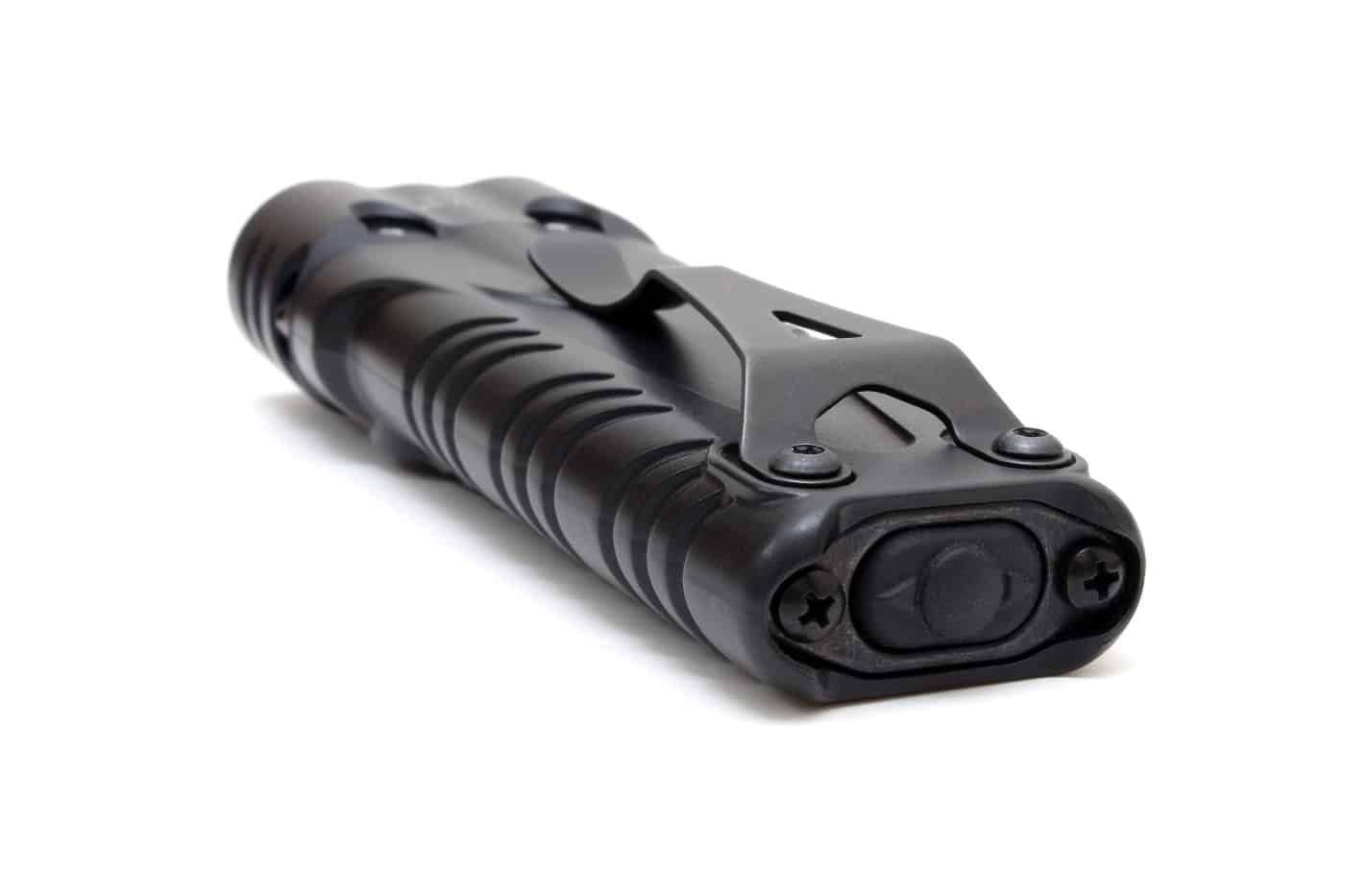
I appreciate the tactical chops and brilliant output of the Stiletto Pro II, but I’m more appreciative that this is just a straight-up good flashlight. The 25 lumens mode will come on with a press of either side switch, allowing the Stiletto Pro II to serve as a useful household tool for finding things lost under tables or desks, looking into dark cabinets, and the like. If you’ve ever tried to “find” something by shining more than a thousand lumens into its general direction, at which point you’ve blown out all observable details with blinding white light, you intuitively know the value of a low-power setting that’s easy to access.
At the same time, the tailswitch is natural and intuitive when held in a tactical, reverse grip. When the flashlight is “drawn” as opposed to picked up from a table, the unit’s full power is easy to access without fuss. In a tactile sense, the buttons are perfect in their sensitivity and responsiveness: nothing feels gummy, sticky, sluggish, or even too sensitive, although the flashlight also can be put into a “lockout” mode to make sure it absolutely cannot be engaged unless the user wills it with a series of specific button presses.
For my needs, the Stiletto Pro II is absolutely a case of “everything you need, and nothing you don’t.” I have groused for some time about the absolutely senseless and byzantine flashlight “software” that require users to perform a weird series of button presses to get to the feature they need. I am glad that superfluity is absent here.
Additionally, the Stiletto Pro II has a remarkably useful fuel gauge. Arguably, the least tactical thing for a flashlight to do is to run out of juice when you need it most, or even to flash the “low” indicator at a bad time. The Stiletto Pro II has green, yellow, red, and flashing red indicators that provided me with a lot of useful context about not just whether it needed to be charged, but the urgency of the recharge. Not to put too fine a point on it, but that feature alone (and its resultant peace of mind) helped it to become a mainstay around the house and as part of my nighttime carry gear.
Dimensions and Carry
The Stiletto Pro II fits into a package that’s 1.7″ wide by 4.5″ long and about 0.9″ at its thickest point. Put into simpler terms, it will sit in the pocket at about the thickness of an iPhone and a half. Weight-wise, the Stiletto Pro II carries at a flat 5 oz.
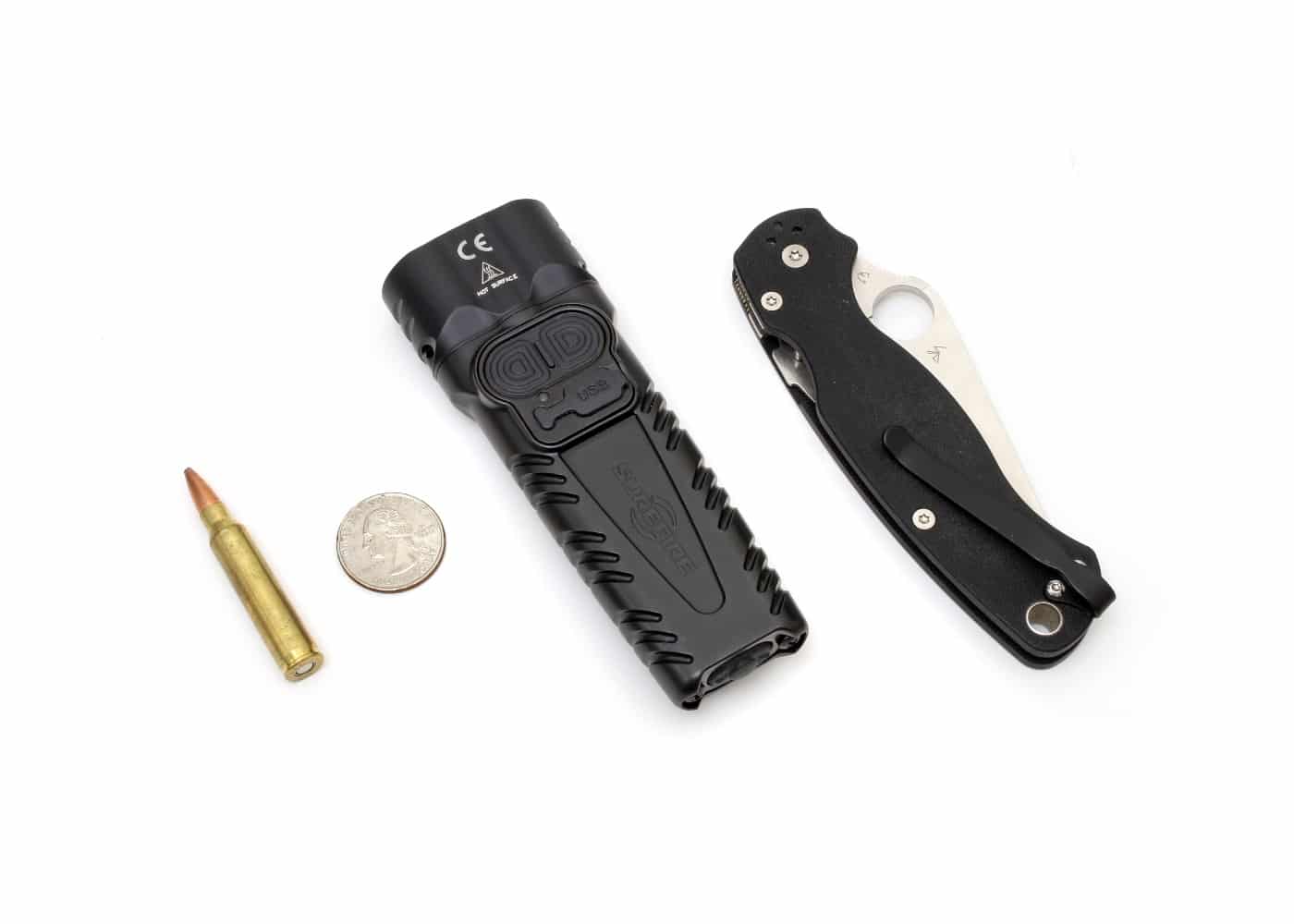
I will say this: though the Stiletto Pro II is impressive in its performance-to-size ratio, and while the internal battery helps to further reduce the unit’s dimensions, I’d argue it’s still not exactly svelte. The pocket clip is undoubtedly a nod to the EDC (everyday carry) movement, but throw this thing in a pants pocket and you’ll be aware of its presence. There are a lot of “micro” flashlights on the market; this is not one of them. (Feel free to disregard all of this, however, if you routinely carry a full-sized M1911 pistol: clearly you’ve figured out how to efficiently store gear on your person.)
I actually found the Stiletto Pro II, for me, was far more at home when I clipped it outside of a pocket for easy retrieval, or inside of a jacket or cargo pant pocket where it didn’t have to fight for space with phones, knives, wallets, extra magazines, and the like. These carry methods made it far quicker to draw and engage the light via a reverse grip. Again, I think the Stiletto Pro II is very much a light I think people should carry as part of their EDC loadout, but those with already packed pockets should be prepared to engage in some real-life Tetris to get everything to fit comfortably.
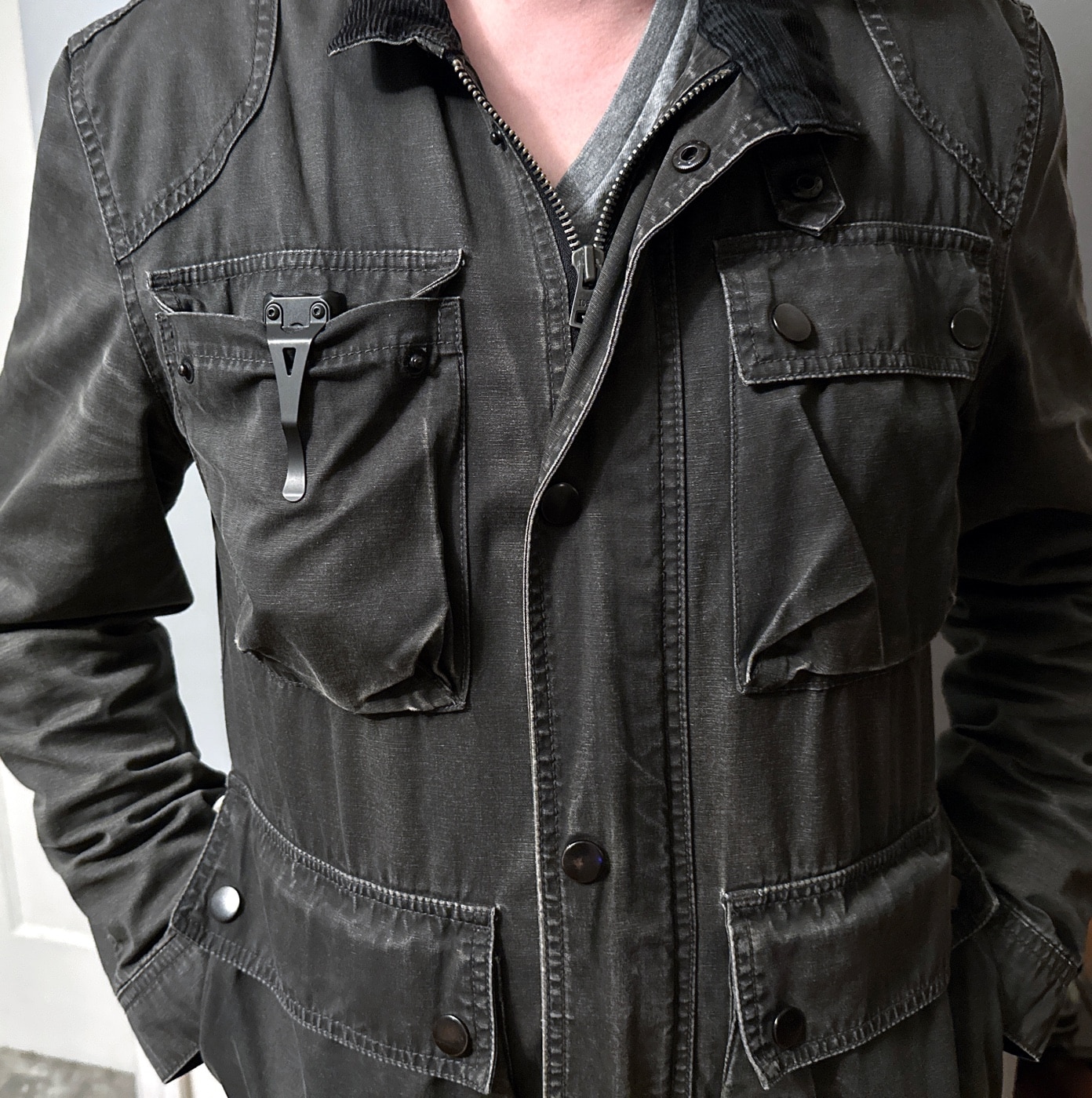
A quick tip of the cap with regards to SureFire’s pocket clip. I would consider myself a connoisseur of pocket knives, and even early into my collecting adventures I became aware that not all clips are created equal. The clip SureFire has designed here, however, is perfectly tensioned: it’s not so heavily sprung that you need to fight to get it in and out of a pocket, but it’s strong enough to stay put.
Criticisms of the Stiletto Pro 2
My father owned a clothing store for 27 years, and always lamented the customer who would come in and say, “I’d buy this shirt if it had X,” or “This would be perfect if it didn’t have Y.” I think it’s fair to evaluate a product on the basis of what we’re given, rather than on the basis of what we wish it would be. I certainly try to adhere to that philosophy wherever possible.
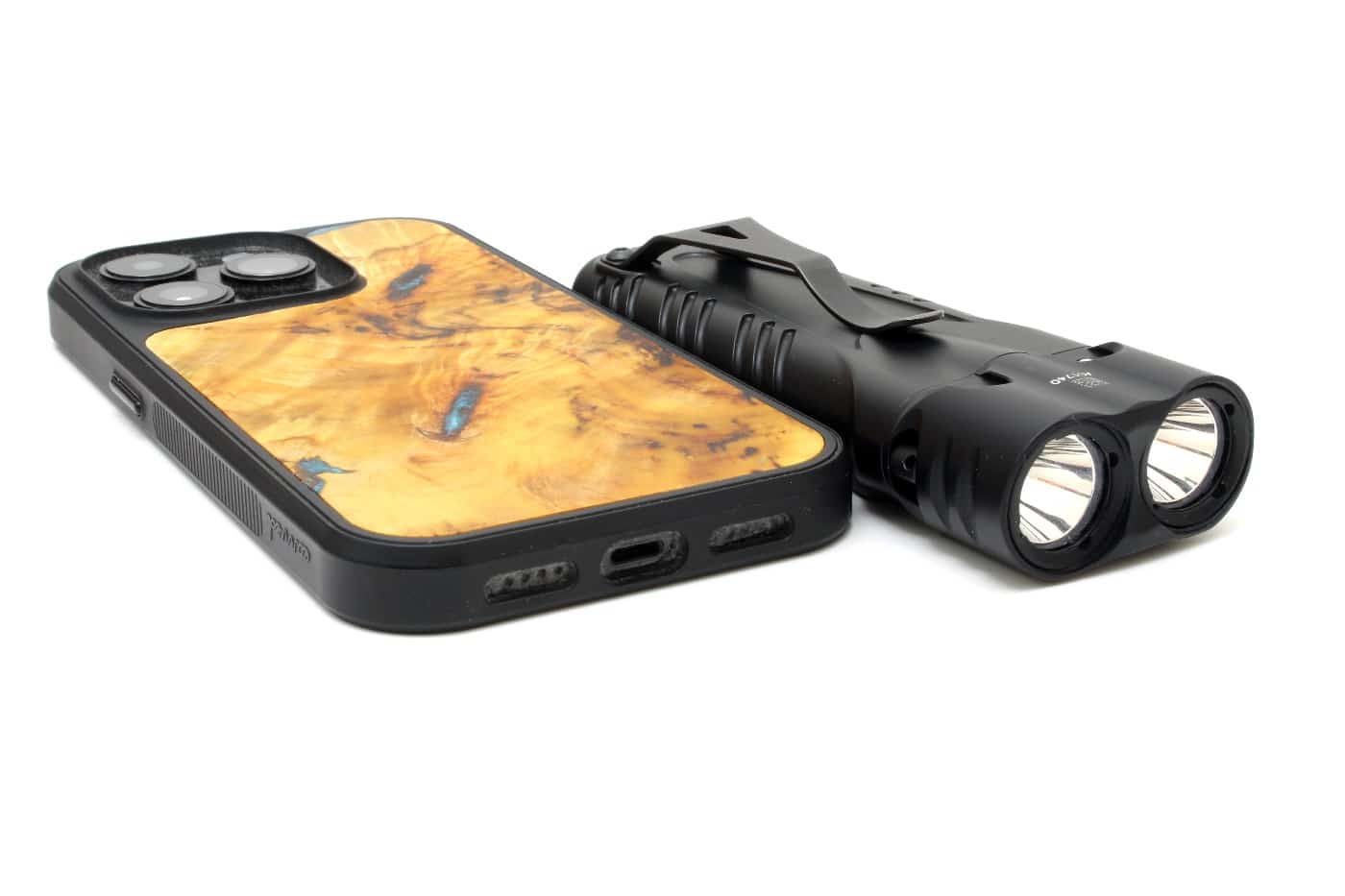
But if we’re picking nits? The Stiletto Pro II has two buttons that do the same thing. Intuitively, two buttons side by side imply “down” and “up.” It’s a design language that has crystallized across just about every phone, tablet, notebook, and music player extant. In the first hour of playing with the thing, I was baffled why pressing the left button in a high power mode didn’t cycle downward through the light intensity.
If I had my druthers? The left button would turn the flashlight on at low power; the right button at high power. Once on, the two would work as minus/plus buttons, respectively, with the left button turning the power off if engaged at the lowest setting.
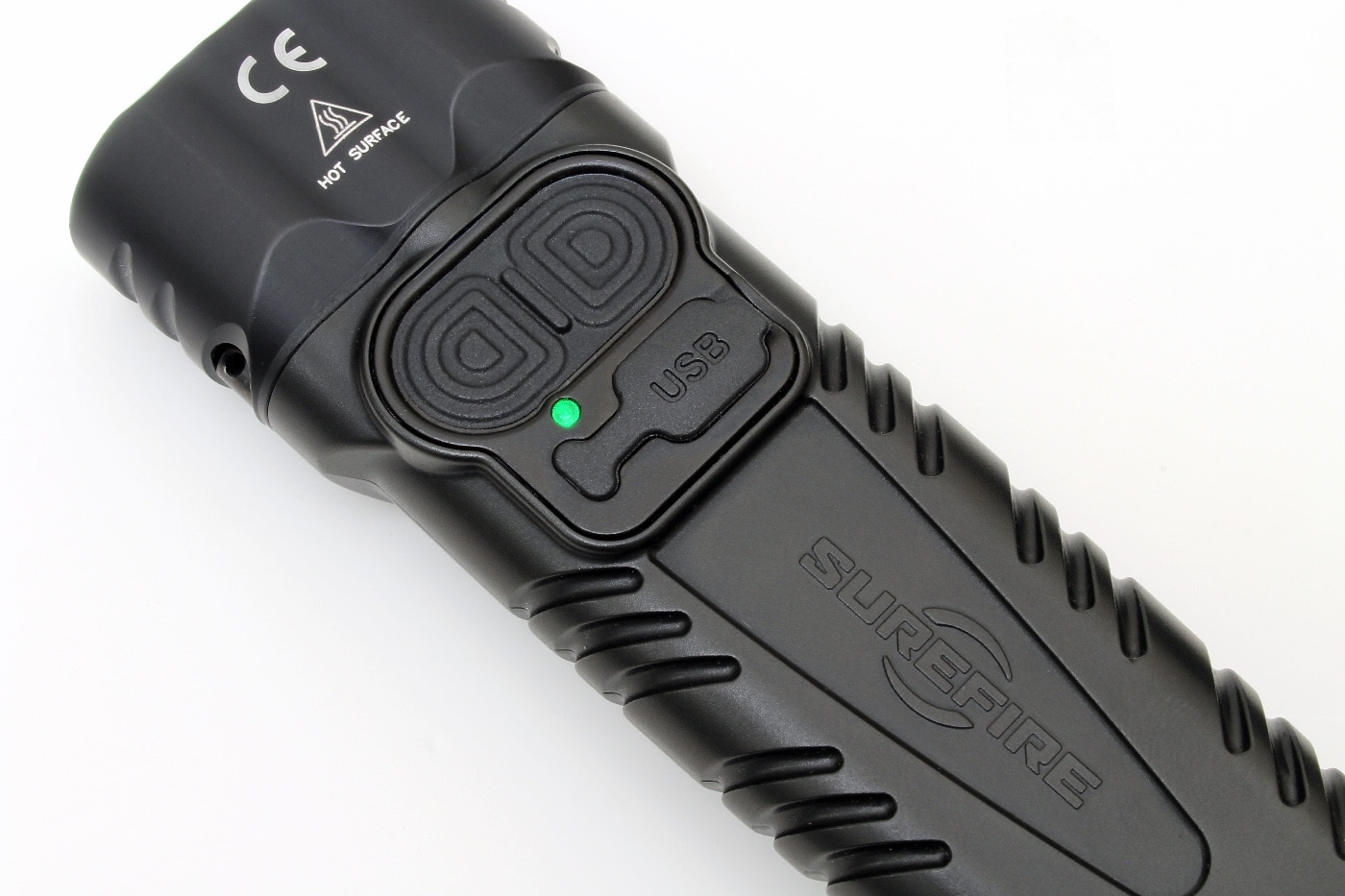
Flashlight technology has come a long way, but we’re now at an awkward period where these pocket torches have a USB port and are billed as “programmable,” but only so far. The options SureFire gives me here are fine, and eminently learnable, but I have headphones, cameras, and even lightbulbs whose performance I can fine-tune via an app or computer software. I feel this degree of user control, inevitably, will come to the world of tactical flashlights, but we’re not quite there yet.
Final Thoughts on This EDC Flashlight
As you might have inferred so far, the Stiletto Pro II is simply a great tool. It’s powerful, intuitive, and has become the go-to flashlight for my wife and me — and let me tell you, having written about guns and gear for more than a decade and a half, I have a lot of kit lying around fighting for pocket time.
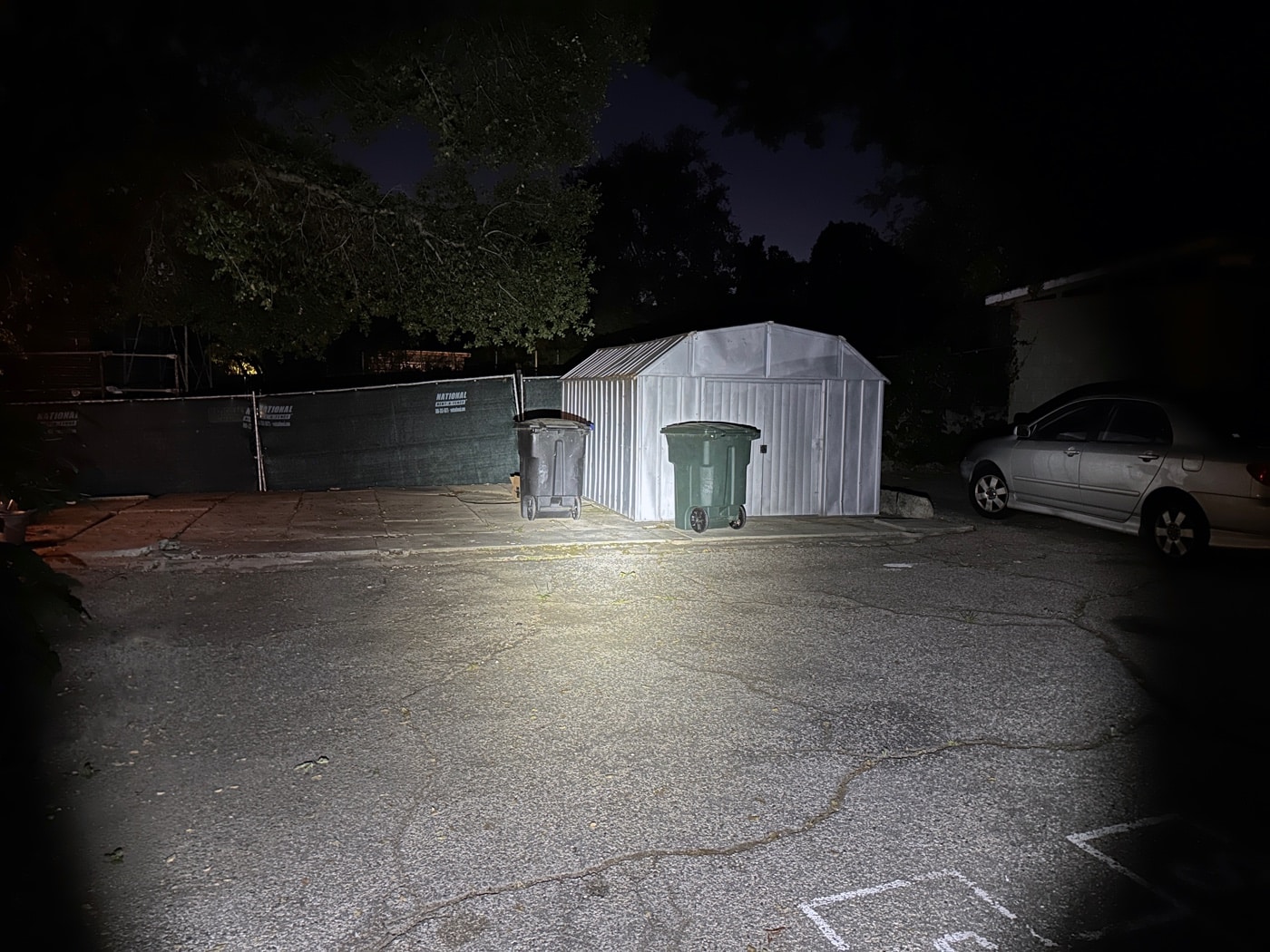
Unlike some of the other fellows here at The Armory Life, I am not a current nor former warfighter, Tier One Operator, or a survivalist of any kind. I’m not even a particularly tough dude. Frankly, I’m a writer who has taught himself how to become a passably good shot. As such, I didn’t attempt to blow the Stiletto Pro II up with an IED or run it over with a tank. I didn’t leave it in a puddle at the top of Mt. Everest.
I did, however, live with this thing for the better part of a month. That, and when it comes to matters of consumer design, I am very picky. Prior to getting intimately familiar with the Stiletto Pro II, I had yet to find a flashlight that worked equally well as a “you might need this to save you” tool and for the far greater number of household tasks that require some illumination. This excels in both roles, and I can appreciate the smart choices and well-considered functionality SureFire has baked into this product.
At the end of the day, I would describe the Stiletto Pro II a lot like a German Shepherd. It’s got the teeth and muscle necessary to keep you and your family safe, but for the other 99.9% of the times that aren’t impending crises, it’s just a darn good companion to have around.
Editor’s Note: Please be sure to check out The Armory Life Forum, where you can comment about our daily articles, as well as just talk guns and gear. Click the “Go To Forum Thread” link below to jump in and discuss this article and much more!
Join the Discussion
Featured in this article
Read the full article here

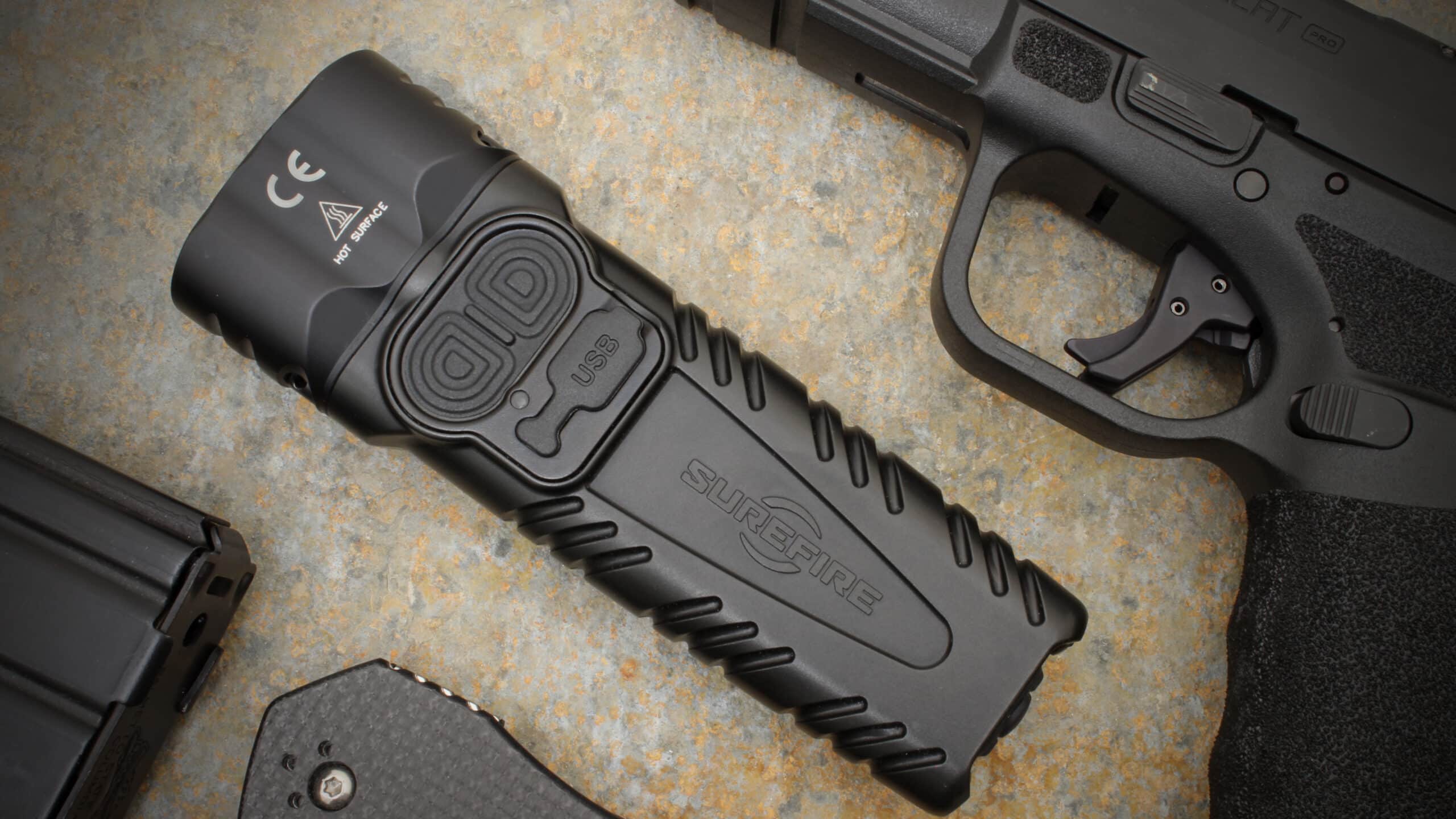
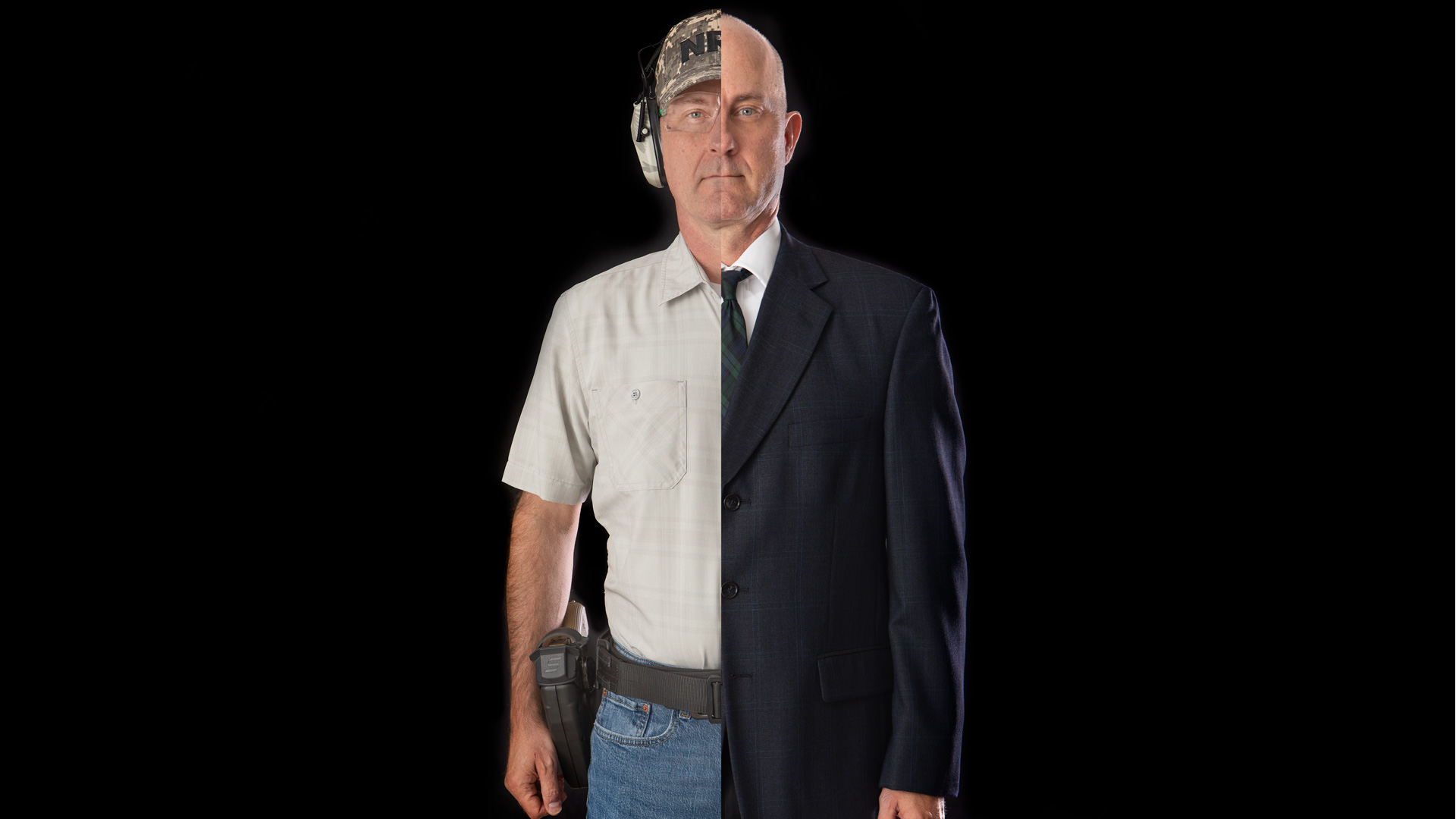
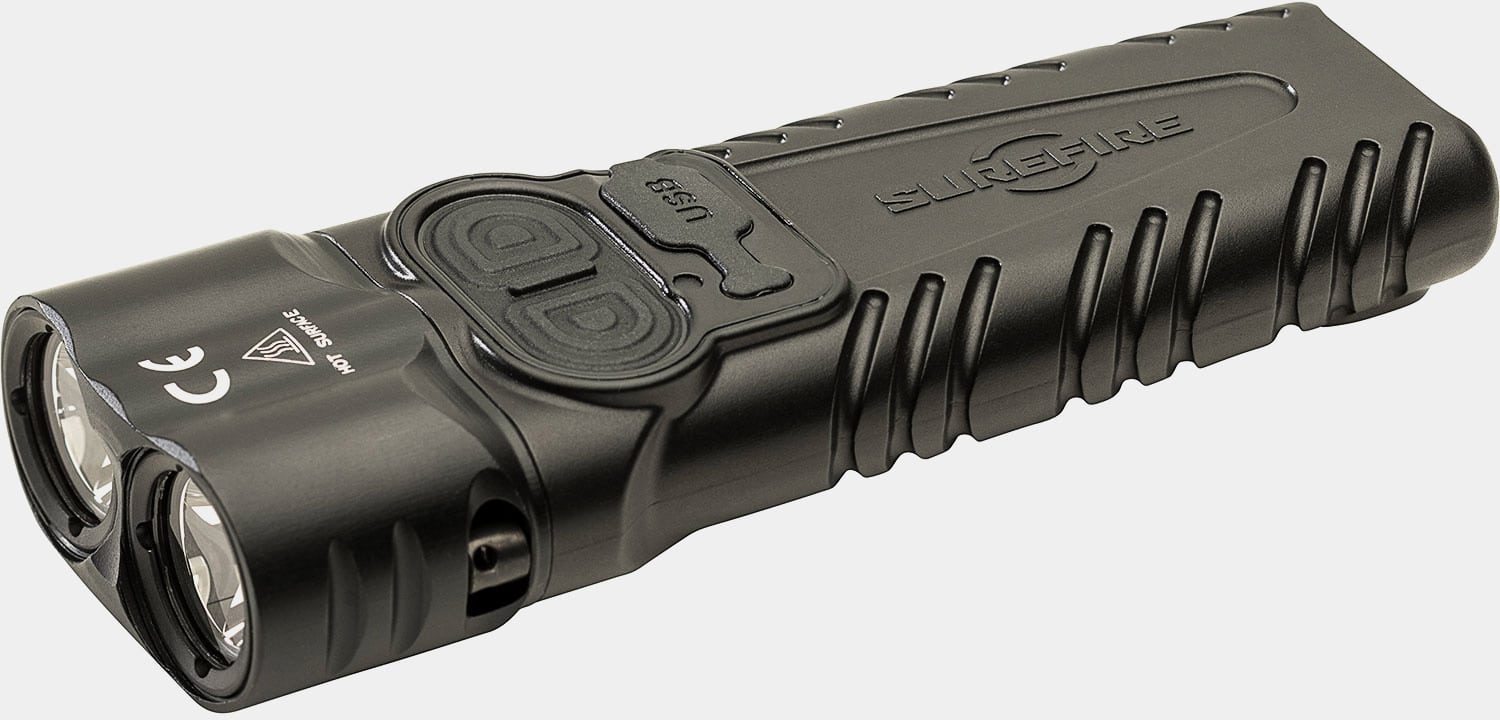
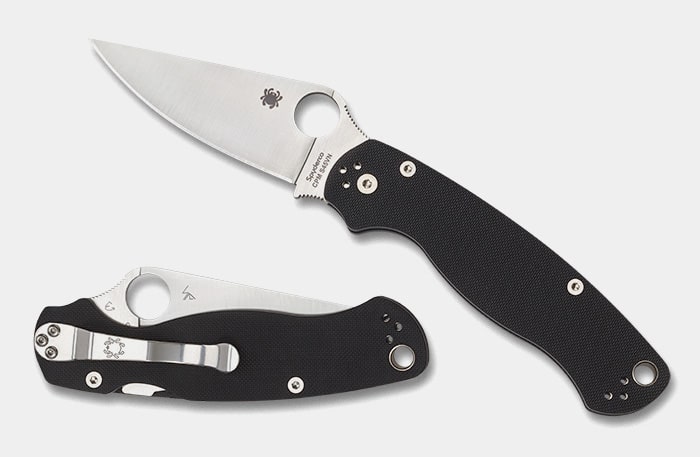




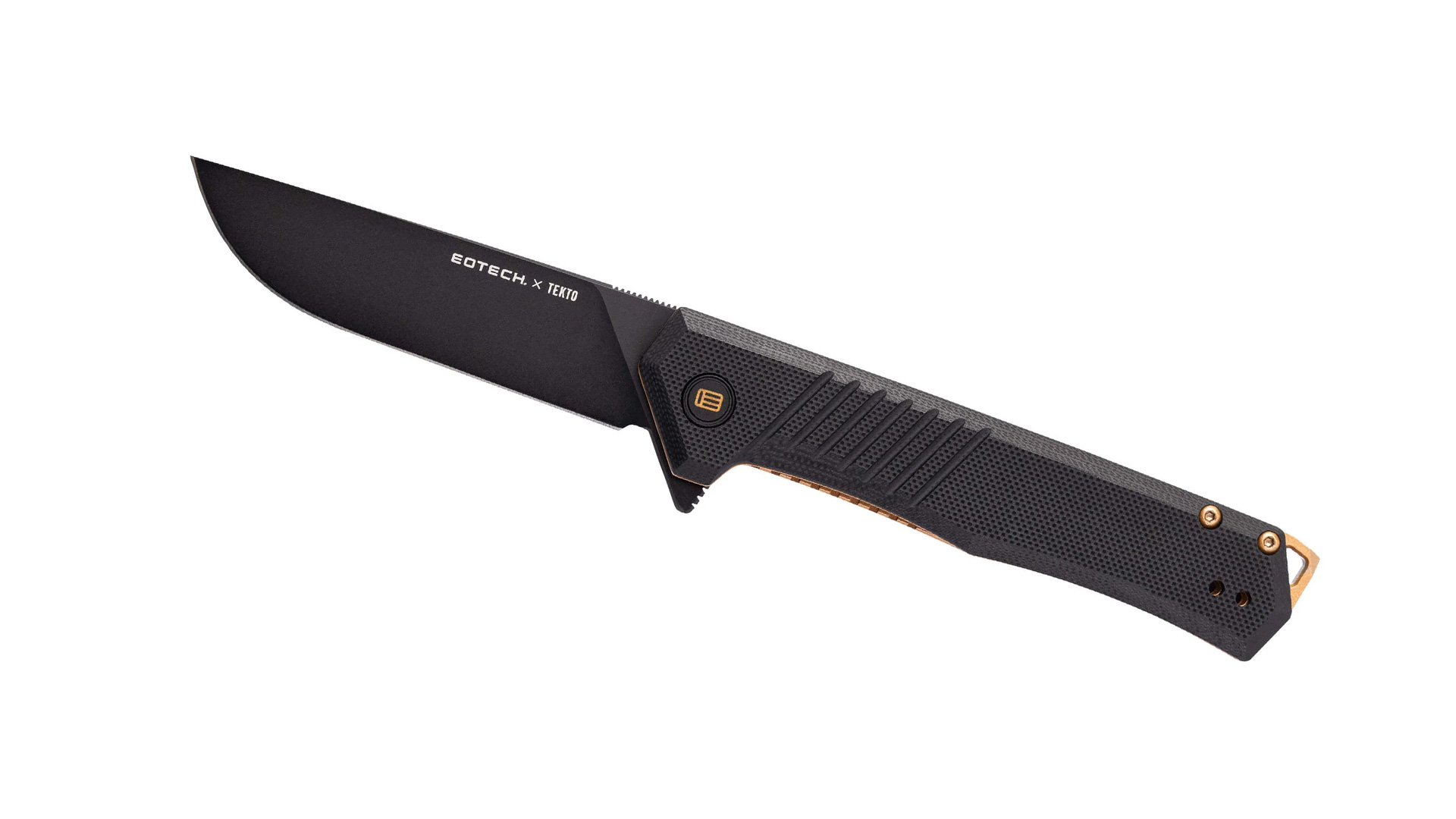
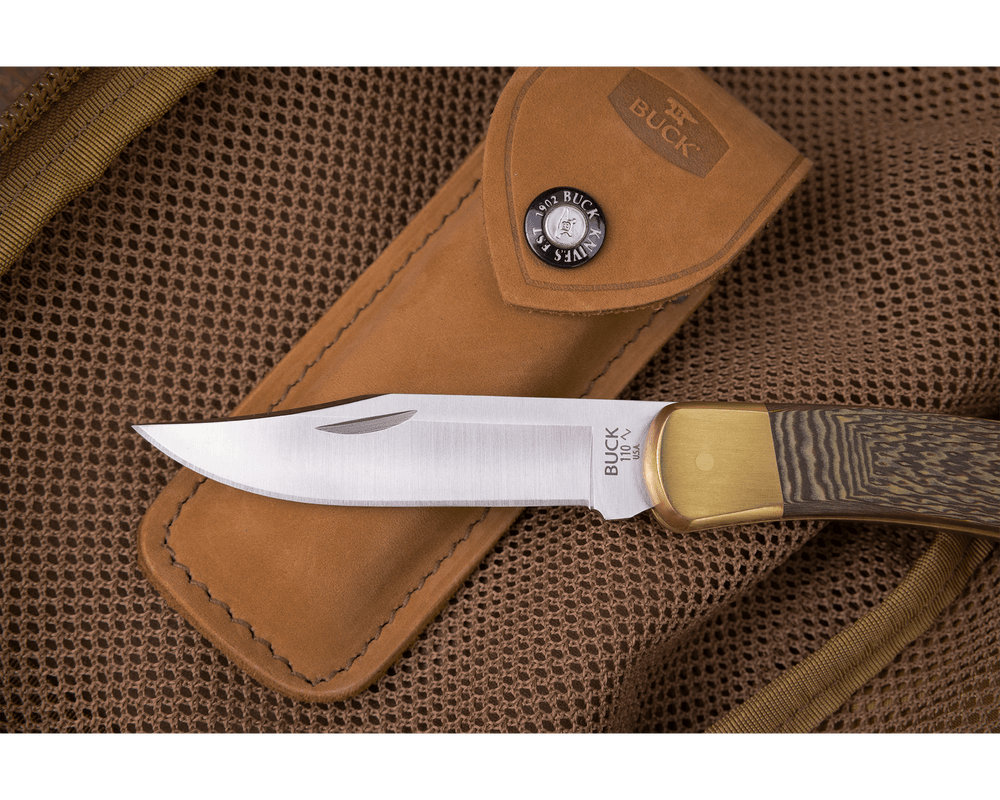

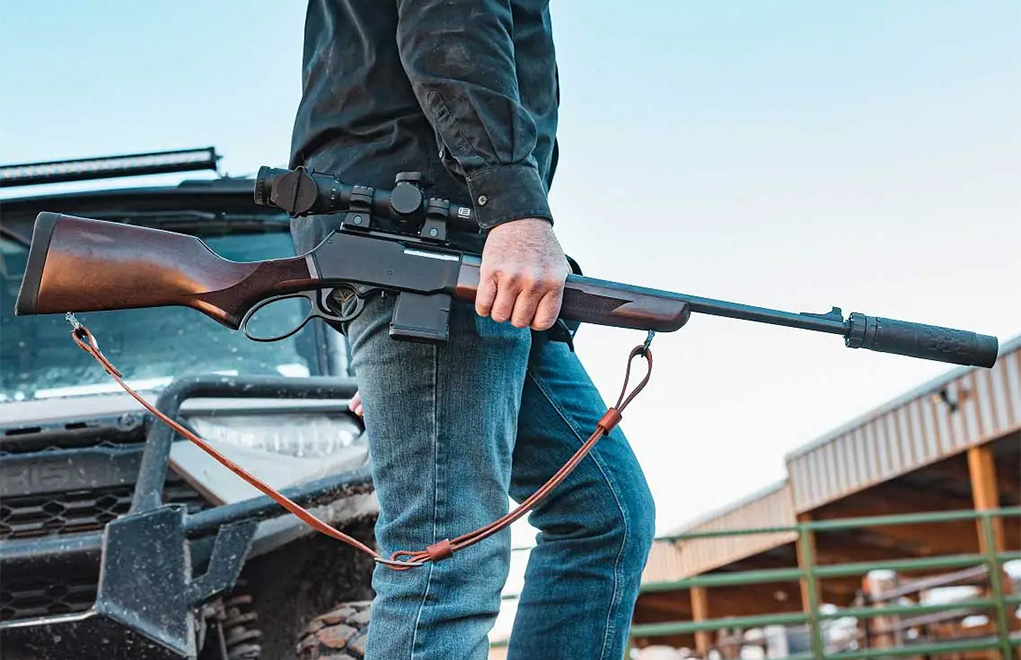

Leave a Reply